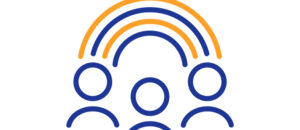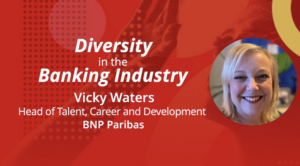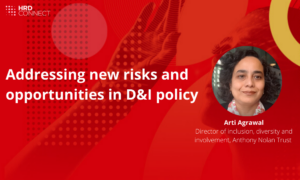The role of D&I in the new world of business
- 5 Min Read
As businesses emerge into a new world, the fight for survival will be determined by a set of key differentiators. Businesses with D&I at the forefront of their strategy could be in the fittest shape to survive. By Fiona Jackson, Associate Consultant, The Clear Company.
- Author: Fiona Jackson
- Date published: Jun 24, 2020
- Categories

As the COVID-19 challenge and our response to it evolves, the ‘new normal’ is a frequently used phrase. The term implies a move from a single way of working that was ‘normal’ to another single way of working. I.e, ‘the new normal’. But there will no single version of this. The pandemic has not been an equal experience for all and the future has never been more uncertain.
Although everyone’s experience is unique, there is no doubt that in times of crisis, some are more at risk of exclusion than others. From the well documented challenges around working from home and home schooling, or coping with the uncertainty of furlough, there are also those for whom the home environment is one where they can’t be themselves, or is unsafe.
For key workers, there is the additional challenge posed by the risk of bringing the infection home and the implications that can have for vulnerable family members.
The only thing we can be sure of is that there will be no ‘normal’ in our ‘new normal’.
Authentic Inclusion
Times of crisis focus the mind on what is important and never before has it been so important to focus on diversity and inclusion (D&I), to bring together the multitude of different experiences employees have had during the pandemic, and to create a future workplace and culture where employees feel that they belong.
The business value to be gained through enhanced productivity will certainly be needed to support organizations to not only survive, but thrive, during what is anticipated to be the largest recession for over 100 years.
As there will be nothing normal about our ‘new normal’, the innovative thinking that diverse teams bring will be needed to create effective solutions to sustainable new ways of working, and essential to providing new and profitable customer products and experiences. With the continued uncertainty and change response that will be needed over the next few years, fostering and nurturing these teams will increase the agility of your business to continuously innovate and respond to opportunities and challenges.
How you act now and how you engage with all employees through the changes to come will either build employee engagement and strengthen your employer brand as a proven great place to work, or risk long term impact. A company that treats their employees poorly will struggle with talent acquisition moving forward. Listening to your employee networks will provide invaluable insight into how well you are doing, and also build long-term communication channels to support the continuing flexibility and ability to change that is likely to be part of our near future.
Customers also seem to be caring more about the ethics of business. The negative publicity and backlash faced by organizations that have not treated their employees well has the potential to be reflected in future profits, as customers take their business to those who may have had to make difficult decisions, but have handled them well.
D&I builds engagement and trust between the employee and the organization. In an uncertain world that trust will be invaluable in trying new ways of working and enabling organizations to stay flexible and agile in response to the unknown future.
Inclusive Leadership
This is a time for authentic, inclusive and value-driven leadership to bring out the best in an organization’s people and create these much-needed inclusive cultures. Previously valued leadership characteristics may become redundant.
Through the pandemic we have seen empathy emerge as a strongly valued leadership behavior. Leaders who have the humility to share their own vulnerabilities and ask for help have been respected. Leaders who have admitted they don’t know all the answers but are listening have been well received.
Going forward and making decisions in a world where many factors are still uncertain will require courage, flexibility and the trust of their employees. To be successful in what is a constantly changing world, leaders should foster inclusive, open, transparent cultures. This way, they will get the feedback they need and engagement they desire.
What can we as HR professionals do to foster D&I?
- HR leaders should consider a review of what leadership behaviors have been effective and valued by employees and adjust their behavioral models accordingly. Leaders must also be rewarded for living these behaviors and provide developmental support for those who may have struggled to adapt.
- Encourage and give a voice to your inclusion champions. Ensure they are visible, engaged in D&I initiatives and are active participants in decisions about future ways of working.
- Challenge non-inclusive behaviors. Be the conscience of the business around D&I, and role model the desired behaviors to set the tone both among your peers and with your leadership teams.
- Celebrate successes and give voice to your minority groups. Hearing another’s story and understanding their perspective builds D&I and makes visible the different experience everyone is having. This encourages an open culture through which to build cohesion around plans to change.
- When listening to your employees, address and tackle issues quickly, to show you are actively listening and taking action to demonstrate commitment to D&I.
- Champion transparency. There’s going to be a lot of unknowns, so share what you know, what you don’t know and what you’re doing to build ongoing and continuous trust from your employees.
- Take time to review your processes and procedures, are they fit for the flexibility and inclusivity needed in the coming months and years? Are they known and understood. Use a framework to ensure you have addressed possible future needs and not just those most urgent now.
It’s a big challenge we face in HR, but our role has never been so vital.









